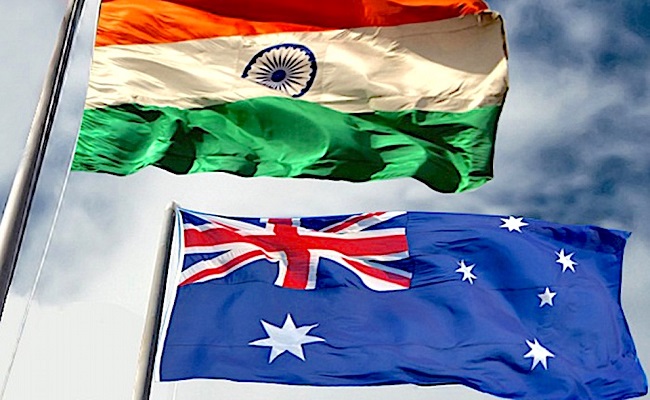India and Australia have always been on good terms when it comes to business alliances, G2B, B2G, and G2G deals. Also, they have jointly taken part in many Air and Naval force drills on the Indian Ocean, as a sign of sheer confidence among these strong bilateral partners. Since 2012, the ties between India and Australia have improved in the nuclear sector and they got formalised in 2014 in a bilateral agreement despite India not being a part of the Nuclear Non-Proliferation Treaty.
In the latest developments in various sectors, both the countries have signed two declarations and seven different pacts in the defence, cyber, mining, and other sectors after the Virtual Summit of India-Australia leaders in June 2020. These are carried out due to the perceived escalating threat of China and have been attained through bilateral strategic initiatives for cooperation in the Indo-Pacific region. India already has such similar pacts with the US, France, and Singapore.
Under the Nuclear Cooperation deal, Australia and India have continued to support the use of nuclear power for Civil purposes. Australia has expressed its support for India’s membership in the Nuclear Suppliers Group (NSG). There have been a lot of developments going on in the area of Uranium supplies from Australia to India. Since 2012, following the Australian Government’s decision to support India, it has been supplying Uranium as part of its civil use.
BHP Billiton, the world’s biggest mining company, and Quasar resources under Heathgate Resources are the core suppliers of Uranium core concentrates from Australia. The Department of Atomic Energy (DAE) under the GOI has turned down the offers submitted by the two firms after evaluating and concluding that the terms of the proposals were not viable for India as the supply contract in the present form does not seem suitable as per the DAE. The two Australian companies have been in discussion with the Indian government on working things out. Australia understands that India’s need for Uranium in the civil nuclear-power generation is on the rise.
Former Australian Prime Minister Tony Abbott and Indian PM back in September 2014, had signed an agreement that paved the way for potential uranium sales to India. In July 2017, Australia had sent a small sample of Uranium for testing purposes.
This current hiccup in the working out of the proposal in uranium sales is seen as a small issue. Ideally, the long-term plan is to support India’s reactors. India has 22 reactors with an installed capacity of 6,780 MW. Out of these, eight reactors are fuelled by indigenous uranium while the remaining 14 are under International Atomic Energy Agency (IAEA) safeguards and are qualified for imported uranium. Australia is seen as a trusted partner to provide a steady supply of Uranium and is expected to boost the performance of the Indian nuclear power plants and supporting nuclear facilities. India can on a long-term benefit in the Australian nuclear deal as Australia is one of the world’s largest exporters of Uranium.
The author is a student member of the Amity Centre of Happiness.





